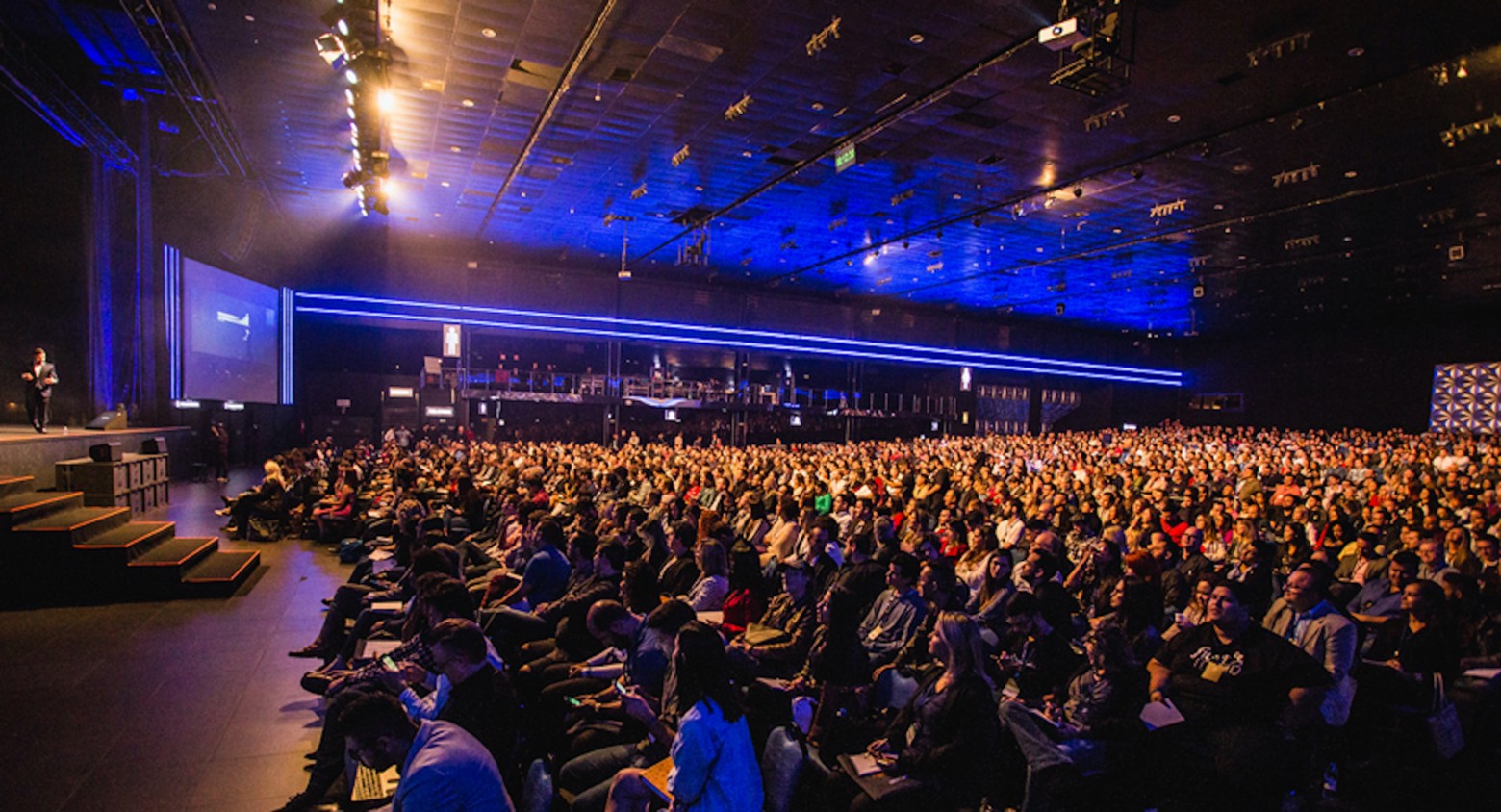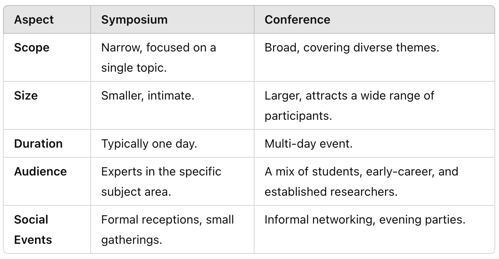The Difference Between a Symposium and a Conference
Conference or Symposium: What’s the Difference?
When organizing an academic event, choosing the right term to describe it—conference, symposium, or something else entirely—can feel tricky. Similarly, as an attendee, you may wonder why the schedule for a "conference" looks similar to that of a "symposium" you attended before.
While the terms conference and symposium are often used interchangeably to describe gatherings of experts exchanging knowledge, there are key distinctions that can help organizers set their event apart.
Selecting the most appropriate term for your event not only clarifies expectations for attendees but also boosts your chances of securing funding. Sponsors, after all, want to understand exactly what they’re supporting.

A large conference room.
The Key Difference: Scope and Size
At its core, the difference between a conference and a symposium lies in the event’s scope and size:
- Conferences tend to be larger, encompassing a broad range of topics and attendees.
- Symposiums are smaller, focused on a specific subject, and attract a more expert audience.
Understanding these differences helps both organizers and participants better align their goals and expectations.
What is a Symposium?
Symposiums are typically intimate, single-day events held in one lecture hall or room, allowing all participants to attend the entire program.
Key Features:
- Sessions often include panel discussions and roundtables that encourage interactive exchange.
- Speakers are usually renowned experts in the specific field of the symposium.
- Attendees are primarily there to learn from experts rather than present their own work.
Social aspects of symposiums tend to be more formal, often limited to a cocktail reception or speaker’s dinner.
What is a Conference?
Conferences are larger-scale events that span multiple days and take place in venues such as congress centers.
Key Features:
- Parallel sessions or tracks covering diverse subtopics.
- A mix of keynote lectures, short talks, and poster presentations.
- Presenters range from students to established researchers and industry experts.
- Opportunities for interdisciplinary collaboration and networking on a global scale.
Social events, like evening receptions or informal gatherings, are an important part of conferences. These foster networking in a relaxed setting and often encourage travel for participants.
Differences at a Glance
Organizing a Symposium vs. a Conference
Understanding the structural and logistical differences between symposiums and conferences can streamline your planning process.
Organizing a Conference
Conferences require detailed planning due to their scale and complexity:
- Broad Themes: Cover diverse topics and include interdisciplinary discussions.
- Peer-Reviewed Submissions: Invite abstracts and posters reviewed by experts months in advance.
- Parallel Sessions: Organize tracks for attendees to choose from.
- Keynote Speakers: Secure high-profile researchers to attract attendees.
Organizing a Symposium
Symposiums are more focused and straightforward to plan:
- Single Theme: Concentrate on a specific, timely research topic.
- Single Room: All sessions occur in one location, eliminating the need for parallel tracks.
- Expert Discussions: Include more panels and roundtables for in-depth dialogue.
- Curated Presenters: Carefully select speakers and panelists based on their expertise.
For conferences and symposiums
What About Other Event Types?
Academic events go beyond conferences and symposiums. Here are a few additional terms:
- Congress: Similar to a large conference, often with a formal tone.
- Colloquium: Smaller, similar to a symposium, focusing on specific topics.
- Workshop: Hands-on learning sessions focused on skills or techniques.
- Seminar: Compact, often recurring, and highly focused discussions.
Each term carries unique connotations, so choose one that best aligns with your event’s goals and structure.
Why Event Terminology Matters
Choosing the right term for your event is more than semantics—it affects how participants perceive your event and helps clarify expectations. Whether you organize a conference or a symposium, using appropriate terminology enhances your credibility as an organizer and ensures attendees understand what they’re signing up for.
Streamline Your Event Organization
No matter the size or type of event, effective planning is essential. Tools like peer-review software, event website builders, and abstract management platforms make organizing both conferences and symposiums more efficient. For an all-in-one solution, try a conference management system like Fourwaves to simplify the process from start to finish.
Conclusion
To some extent, the distinction between a symposium and a conference is fluid. The choice of terminology often comes down to event goals, scale, and audience expectations.
However, selecting the most appropriate name can significantly benefit you as an organizer and help attendees better understand the nature of your event. Use these insights to confidently name and plan your next academic gathering.
Event registrations, networking, peer review, abstract submissions.


